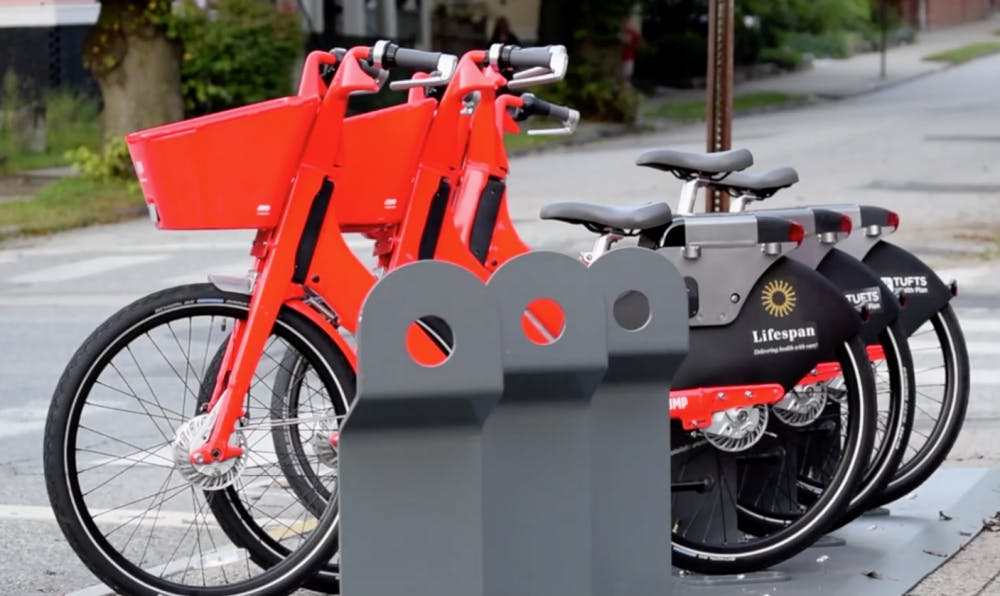As classes kicked off this semester, so did JUMP Electric Bikes — a new bike-share program that brings hundreds of red dockless bikes to Providence. Uber, which purchased JUMP Bikes in spring 2018, and the City of Providence partnered to allow community members to rent bikes through the Uber or JUMP Bike apps.
To rent a bike, users can select any of the small bike icons on either app to find a charged bike nearby. Once the JUMP Bike is reserved, the app provides a pin to unlock the bike’s built-in lock. After each use, the bikes are either returned to a JUMP Bike hub — such as the one in front of Metcalf Research Building on Thayer Street — or to a public bike rack, a streetlight pole or another public spot.
There are multiple ways to pay for the service. Riders can decide to pay $2 for 30 minutes of riding, and then pay by the minute, or pay $20 per month for an hour of riding each day. There is also a $5 per hour option for participants in initiatives such as Supplemental Nutrition Assistance Program or the Free or Reduced Price School Lunch program.
Launched Sept. 6, JUMP Bikes’ arrival follows seven years of talks about introducing a bike-share program to the city, according to Ben Smith, deputy director of communications for Mayor Jorge Elorza.
“JUMP e-assist bikes position Providence to be a more sustainable, healthier and fun city for years to come,” Smith wrote in an email to The Herald. “They are incredibly powerful tools that provide residents and visitors with accessible, affordable transportation options.”
Co-President of Bikes at Brown Harry August ’19 purchased a month-long subscription to the service.
“I love (JUMP Bikes). They’re just really fun to ride around,” he said, adding that he has not had to walk “more than a few blocks” to find a bike since the program’s inception.
Assistant Vice President of Government and Community Relations Al Dahlberg sat on the University’s internal task force of students, faculty and staff that advised the city on the bike share initiative. According to Dahlberg, the dockless feature of the bike-share is one of the system’s “key advantages.” He also highlighted the bike’s electric pedal-assist — which gives riders trekking up Providence’s many hills an extra 20mph boost.
The University’s internal task force spoke with the City of Providence about issues of “cost, safety and convenience” and also pinpointed spots on campus where hubs should be stationed, Dahlberg said.
“Brown supports bike share because it offers another means of mobility for our community,” Dahlberg said. “We want to see the program succeed and benefit all areas of Providence.”
Rhode Island School of Design and Rhode Island Public Transportation Association, among other Providence-based organizations, were involved in the planning process.
After a review of proposals received in the Request For Proposal process, the City awarded the contract to Social Bicycles, which later changed its name to JUMP, Smith wrote.
Smith added that they “explored many bike share programs that exist in other U.S. cities as models” and ultimately chose to invest $400,000 in federal grant funds to Social Bicycles. Lifespan and Tufts Health Plan sponsored the project.
As of Sept. 15, there were 400 JUMP Bikes in Providence.





